25 black donors on my 25th birthday
Gloria Adelusi, 25, from Kent, shares her experience growing up with sickle cell and describes how she gave herself the ultimate 25th birthday present: 25 people to donate blood!
My experience with sickle cell has been very different to what a lot of people with sickle cell go through. Growing up, I wasn’t heavily affected by it as a child and to be honest, I didn’t know much about it.
I knew that I needed to take Penicillin and Folic Acid every day, and although I would have the odd pain here and there, I was never admitted to hospital throughout my childhood.
Although we knew I had it, my mum and I were unaware of its extent. In the African community, it’s a taboo subject that isn’t commonly discussed. It wasn’t something you just announced.
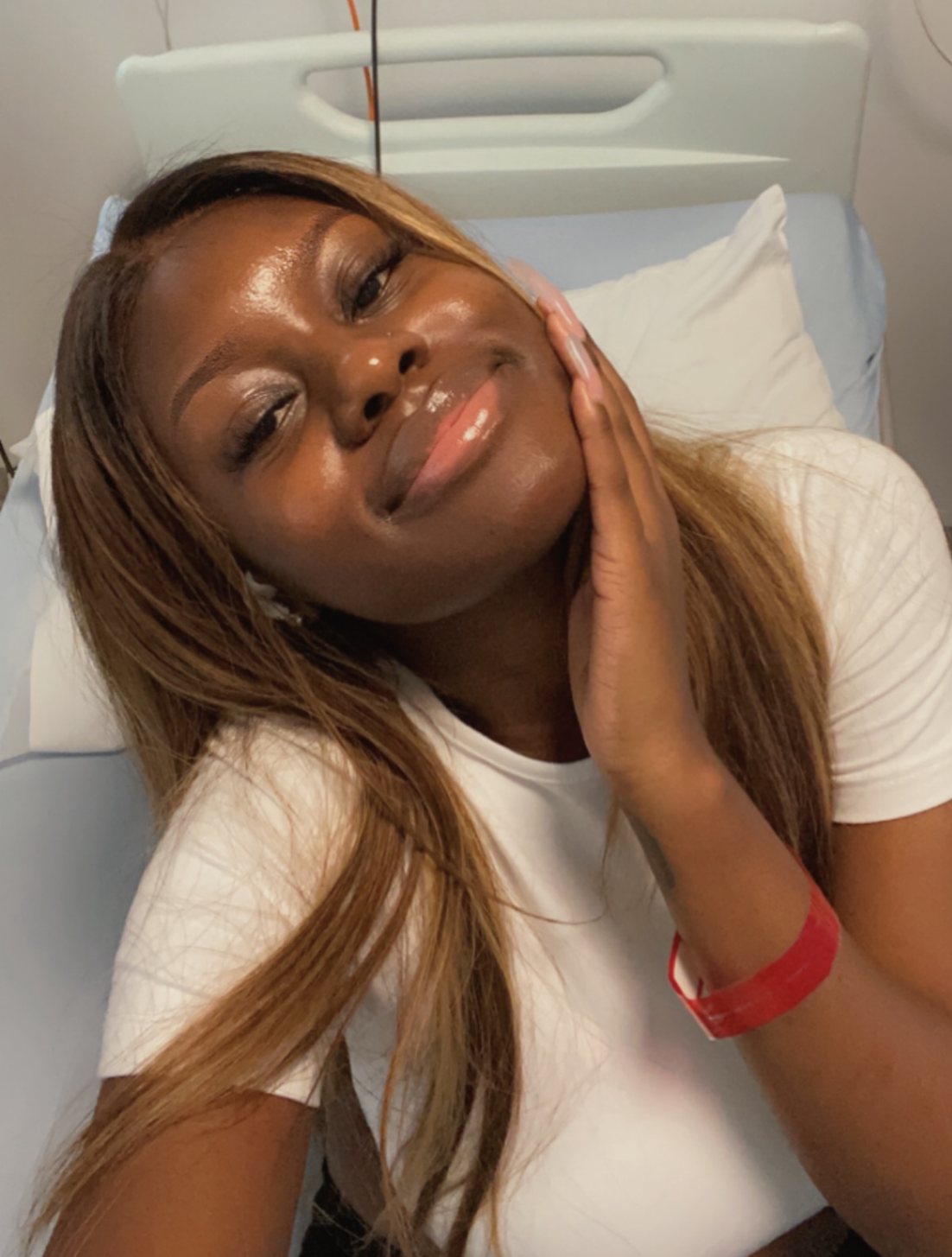
What is sickle cell?
In the UK, 15,000 people are affected by sickle cell and more than 300 babies are born with the condition each year.
The inherited blood disorder causes misshapen red blood cells that can get caught in blood vessels, blocking the blood flow. This can lead to extreme pain, called a sickle cell crisis, and life-threatening infections.
Patients with sickle cell need blood transfusions. These help to reduce and prevent a severe crisis, but to get the best treatment, patients need blood from a donor of the same ethnicity.
Many sickle cell patients have the Ro blood subtype and currently, there is a gap between the amount of Ro blood we collect and the demand for Ro blood from hospitals.
Having my first crisis
It wasn’t until I turned 18 and I was in university, it started to hit me a lot more, especially when I was under stress. Over recent years, the pain began to get increasingly worse to the point I was in the intensive care unit a few times.
Going to hospital for the first time and having my first crisis was an extremely painful and scary experience. I’ve had to go back to square one and learn about sickle cell myself as an adult to understand what it is that I’m going through.
The ultimate gift
After I had a blood transfusion to treat another crisis, I became determined to encourage more black people to donate blood. I spoke to a lot of friends and realised that there is a significant lack of knowledge surrounding blood donation, particularly in the black community.
Most people were generally unaware about the urgent need for black donors to help people with sickle cell.
I knew I could make a difference; it was so important to me, and I wanted to do something meaningful for a milestone birthday, something that would strengthen me mentally and help to raise awareness at the same time.
Then it clicked, 25 black blood donors for my 25th birthday!
The link between Ro subtype and black donors
The Ro subtype is 10 times more common in people of African and Caribbean descent, who account for the vast majority of sickle cell cases.
However, only around 2 per cent of donors have this rare subtype, so meeting the demand can be difficult. That’s why the blood of black donors plays such a vital role in helping to save and improve the lives of those living with sickle cell disease in the UK today.
Posting on social media
I posted to Twitter that I was looking for 25 black people to donate blood and I received a surge of responses, from friends to strangers; I couldn’t believe how many people were interested and willing.
People were hesitant at first, but after explaining how quick and easy blood donation can be, everything felt seamless.
During the process, I kept in contact with everyone and made sure they were fully prepared for their appointment. Everyone would send me a picture of them donating and by the time my 25th birthday came around, I had hit my goal number of 25!
I was so proud of myself; I couldn’t believe I had accomplished this all from my hospital bed.
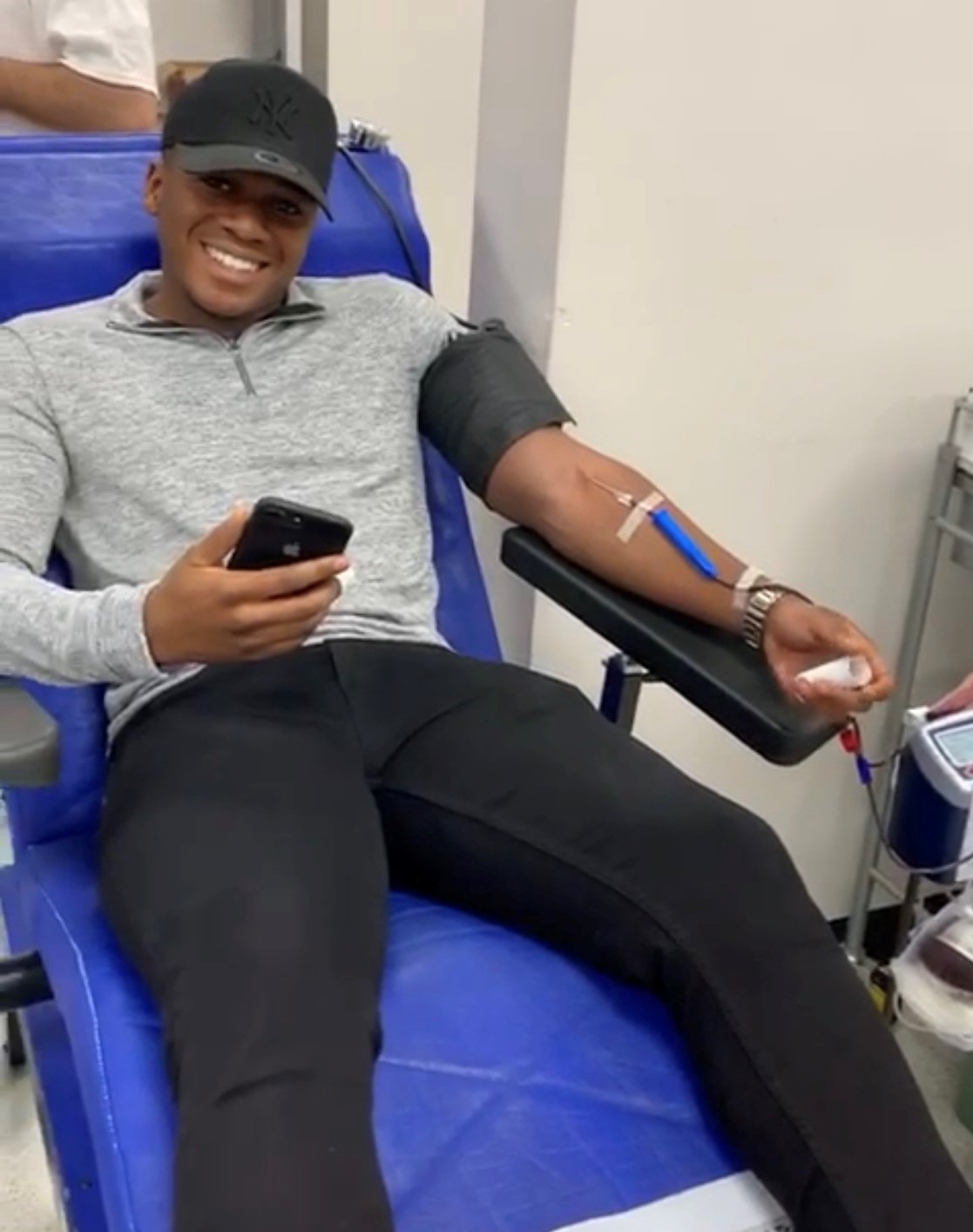
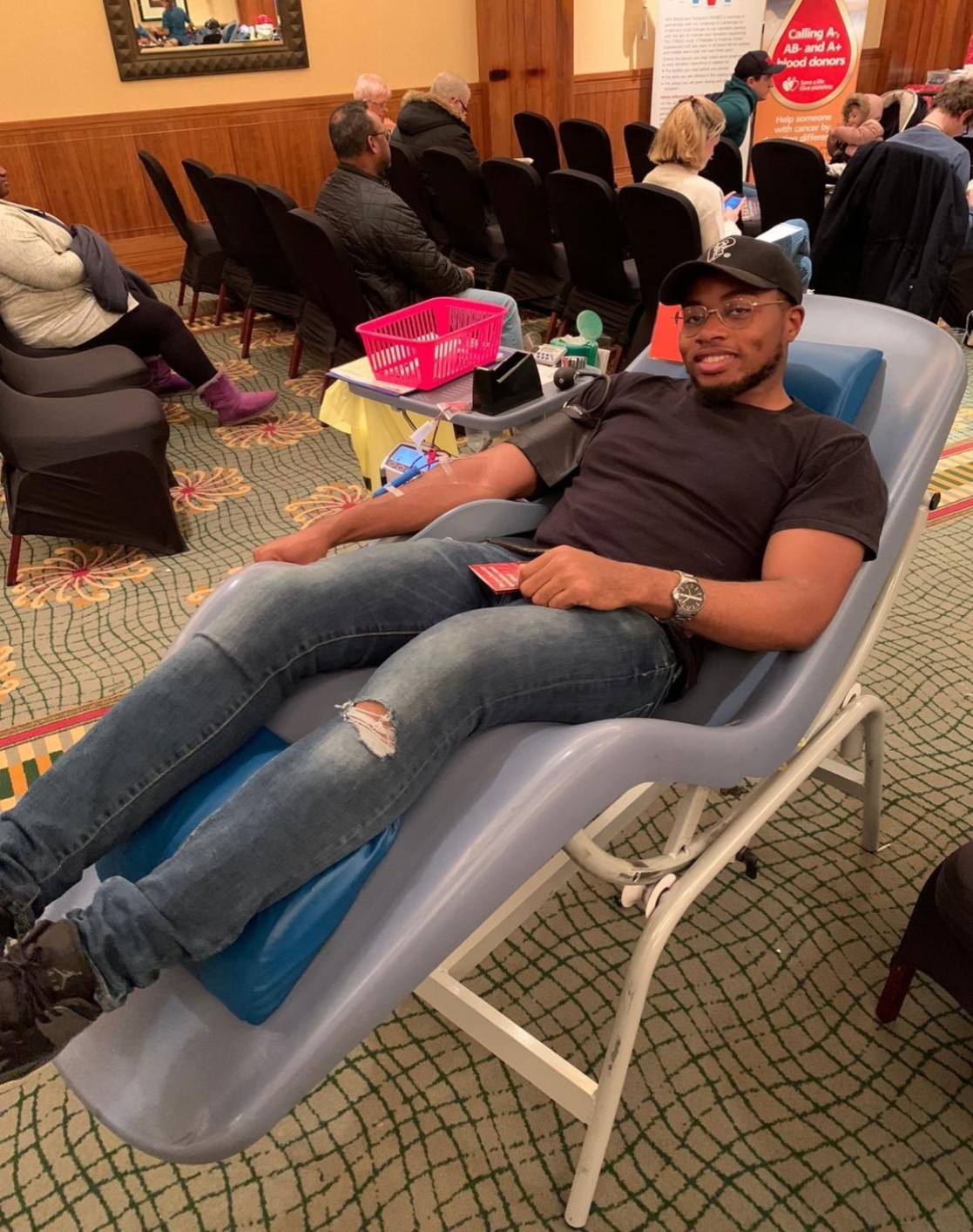
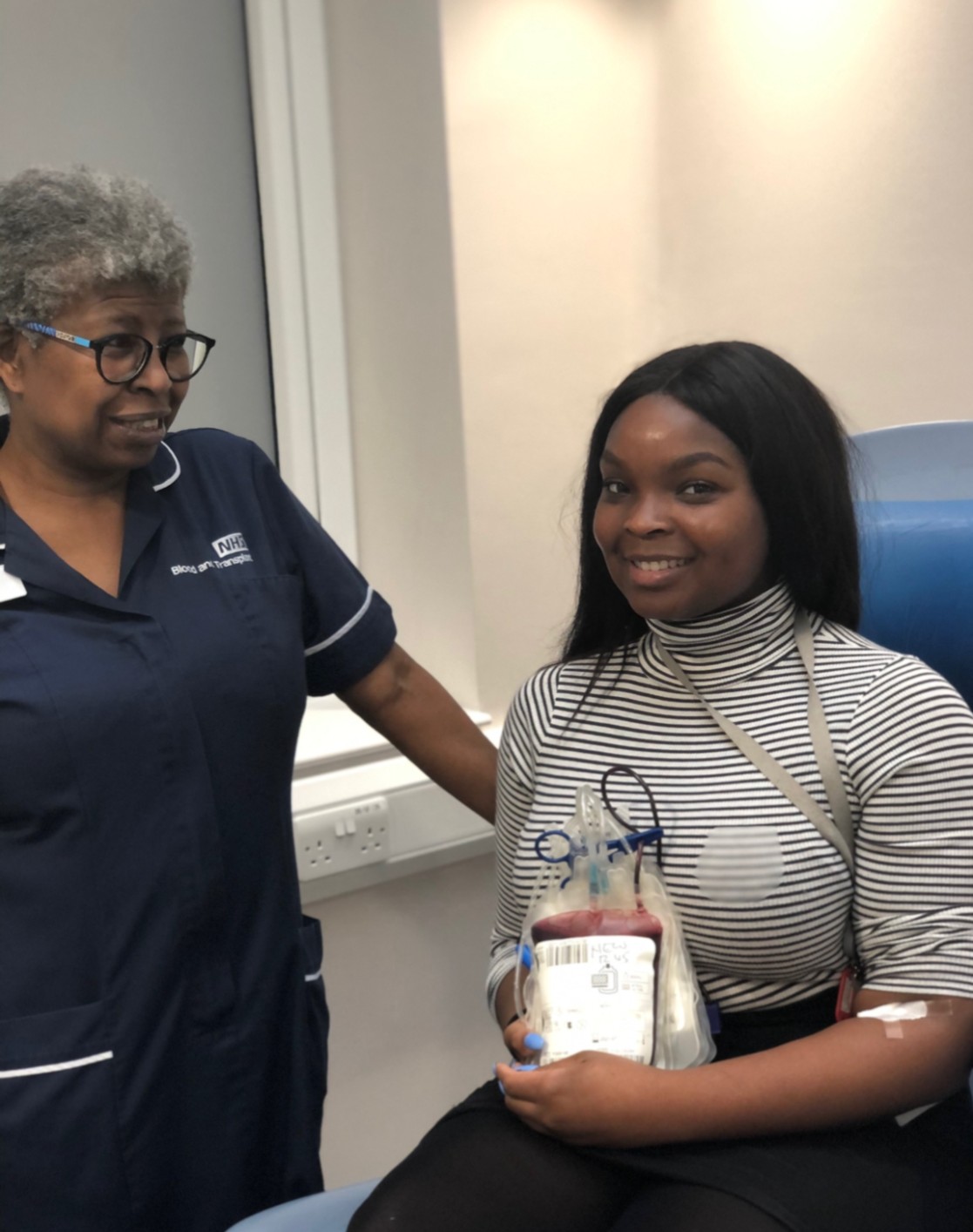
I’m happy to say that majority of the people who donated for my birthday have continued to donate blood in their own time. I’ve kept in touch with a lot of people and I’m glad I was able to play a part in them becoming active donors.
My mum is now a lot more open and outspoken about sickle cell. She encourages parents with children that have sickle cell to be more aware about the condition and increase their knowledge on it so they’re able to manage sickle cell better. It’s refreshing to see such a contrast over time, she’s now become an advocate.
To know that I have played a small part increasing the number of black people donating means so much to me
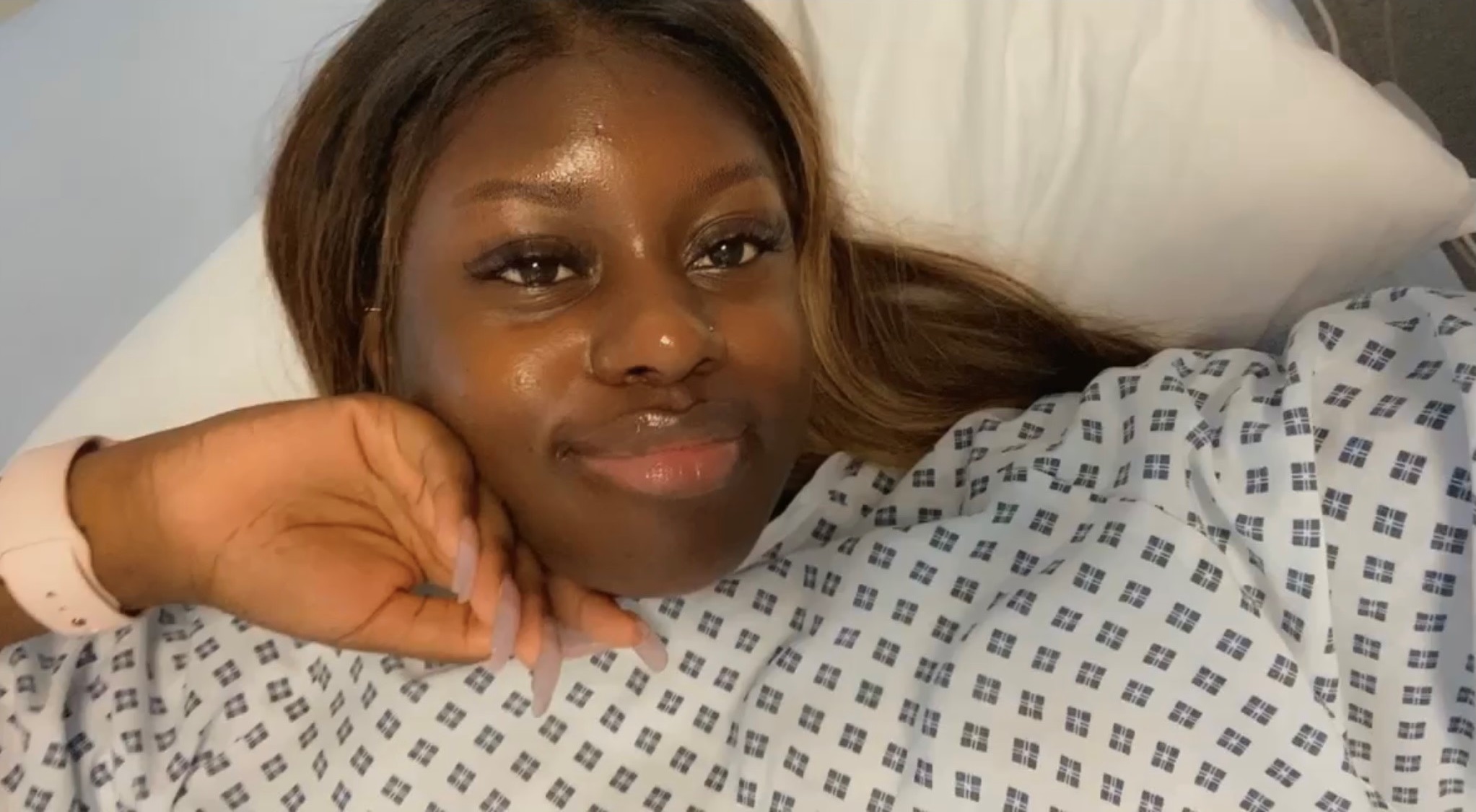
Even though I’m still suffering with sickle cell and some days are so hard, I feel motivated to keep going. I want to continue to use my platform to speak about sickle cell and encourage more people to donate blood.
So many people have been incredibly supportive, and I still receive a lot of lovely messages from both people with sickle cell and people that felt inspired to start donating blood.
To know that I have played a small part increasing the number of black people donating means so much to me. Although that number needs to increase, I have faith that eventually it will rise, and black people will become aware of the urgent need for blood donations from the black community.
I am so grateful for every donor that has ever donated blood as it has helped to save and improve my life and the lives of many others.
Book your appointment online
Book now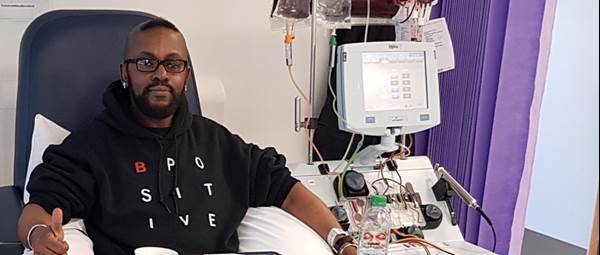
Sickle cell and blood transfusions
Blood transfusions can make a huge difference to people with sickle cell

Other stories
Remarkable stories from the world of giving blood – be they from the research lab, the hospital bed, or the donor chair
